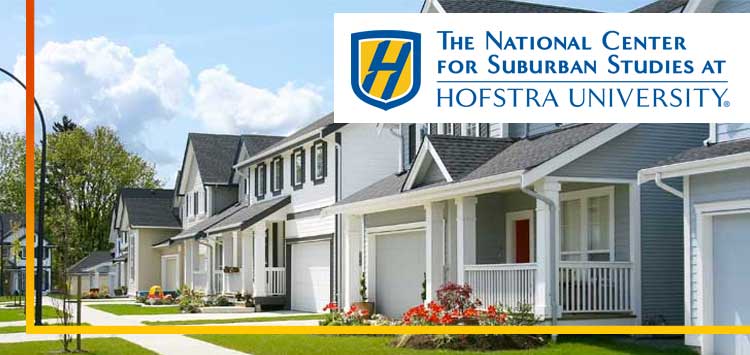The Cultures of the Suburbs International Research Network and The National Center for Suburban Studies at Hofstra University®
present
Out of Control Suburbs? Comparing Representations of Order, Disorder and Sprawl
27-28 June 2013, Hofstra University, Hempstead, New York
Keynote Speakers TBC
Following the success of our 2011 Inaugural Symposium, our second meeting seeks to discuss the nature and representation of suburbs, suburban life and sprawl whether local, regional or global. Where are the margins of suburbia and do they represent order, disorder or nostalgia? How is sprawl defined – as organic social process or negative cultural impact? And how is it experienced by diverse communities and individuals? What are the aesthetics of order and sprawl? How do representations of suburban sprawl and disorder converge or diverge between the Global South and North – and within the Global North?
Questions that the symposium aims to address include: how are order and disorder understood and represented in relation to suburban zoning, planning and placemaking; greenbelt spaces, public parks and private gardens? How do poverty, physical deterioration and crime change the ways that particular communities are envisaged, and for whom are these places policed and controlled? In what ways would a “Right to the Suburb” differ from a “Right to the City”? How does the disorderly mobility of suburbanites – pedestrians, commuters and migrants – give rise to new visions for managing their movements at various scales? In what ways do the artistic, social, civic, sporting and religious aspects of a community shift and change according to the sprawling sites and changing infrastructures around them? And how do children and their elders reflect on the order or disorder of their suburbs?
In a continuation of the practice that worked so effectively at our first symposium, and in order to encourage maximum participation and dialogue, we welcome proposals for 10-minute papers from a range of disciplines including (but not limited to) the arts and humanities, social sciences, and applied sciences such as Architecture, Design and Planning.


